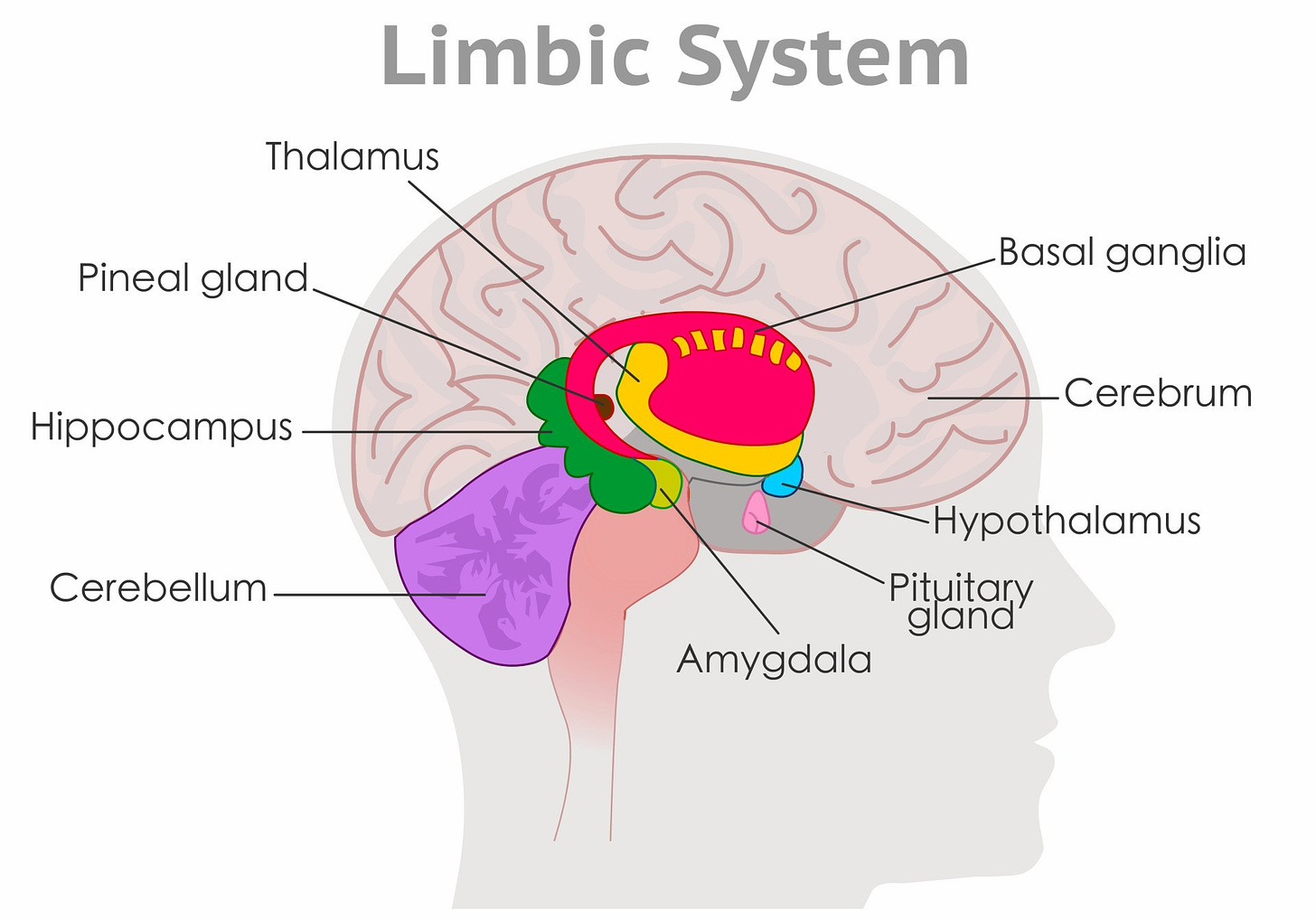To Be Kind Is To Be Human (Bonus: It Also Reduces Stress and Anxiety)
Human #Kind might be biologically predisposed towards acts of kindness.
👋🏾Hi, I’m Chris, I share thought-provoking insights on personal development, healthy living, travel tales, parenting, life lessons and technology trends.
Do you often have a feeling of happiness when you help someone?
It turns out that it is not just psychological feedback but also a natural body response deeply rooted inside our brain chemicals.
Moreover, studies found that the same chemicals can also help our body to reduce stress, fight anxiety, protect against depression, and generally maintain the balance of our well-being.
Why we are stressed
Our brain is designed to help our body respond to a perceived harmful situation (e.g. stress or fear) or a threat to our survival (danger). This is what we know as the Flight, Flee or Freeze response.
Since this situation is usually a matter of life and death (like when faced with a hungry Sabre-tooth), the response is automatic and immediate, bypassing the normal (logical) brain function.
The part of the brain responsible for this response is the Amygdala (emotional brain).

Suppose the Amygdala perceives the stimulus as potentially stressful or harmful. In that case, it sends a warning to Hypothalamus which then sends a message to the adrenal gland to produce Cortisol and Adrenaline.
These 2 are the main stress hormones which prepare the body to react - to fight or to run away - for example by increasing heart rate and pumping more ‘sugar’ into the blood.
Positive stress is usually temporary, after the danger passes (you killed the tiger or managed to evade it), the body will go back to normal.
Chronic or long-term stress however has a negative impact and is harmful to the body.
By the way, Amygdala stores the memories to remember what made us stressed in the first place! This means we don’t need to be in the same real situation to trigger our brain, we could trigger stress just by ‘thinking’ about that same situation!
So what does this have to do with being kind? Let’s check out other biological parts of our brain.
Feel Good Hormones
One group of hormones produced by our body is nick-named the ‘Feel-Good Hormones’ because they give us the feeling of happiness and sometimes euphoria.
There are 4 of them:
Dopamine
Endorphins
Oxytocin
Serotonin
Dopamine - the pleasure hormone
Dopamine is part of the body’s reward system, it gives you a sense of pleasure as a reward when you are doing the things that you need to do to survive - eat, drink, compete for survival and reproduce.
We are hard-wired from an evolutionary point of view to seek things that give us this good feeling and pleasure.
From a positive point of view, the hormone helps us to be motivated, focused, alert and happy.
The problem is, as you know, it can also make us addicted!
It’s because the brain remembers those things that give us pleasure; sugar, junk food, screen scrolling, and hard drugs.
We want to repeat that ‘euphoric’ experience and therefore keep looking for the same thing or activity.
Endorphins - the body’s natural ‘Morphine’
Endorphins is released by the brain as a response to pain or stress. It relieves pain and creates a general feeling of well-being.
We feel the effect of this hormone when we think or eat nice food, fall in love, have sex, having a good laugh. (Yes all of these activities relieve stress, anxiety and depression.)
Endorphins is also produced after a high intense exercise, and the euphoric effect is often called “runner’s high” - it is when our body is stretched to the limit and needs some help to give strength and keep going.
Research found that the same part of the brain that produces Endorphins, lit up when people thought about doing charity, the same way it lit up when they thought about food or sex.
This phenomenon is often called the “helper’s high”.
I am sure you feel it as much as I do. Every time I am helping someone, I would have this feeling of being happy.
Oxytocin - the “Love Hormone”
Oxytocin is mainly responsible for facilitating childbirth and breastfeeding.
It is also produced as a response to sexual stimulation, during arousal and after orgasm - hence the nickname ‘love hormone’.
Oxytocin plays a role in prosocial behaviour, such as social bonding, romantic relationships, and trust.
Research shows that Oxytocin produces an anti-depressant-like effect, reduces fear, decreases anxiety, and protects against stress.
Being in a positive, caring and supportive environment; i.e. being on the recipient end of kindness would increase the level of this hormone.
In turn, this will counter or even block the negative impact of stress-related responses.
Serotonin - the mood booster
Do you know that many anti-depressant medicines, including Prozac and Escitalopram, work by increasing the level of Serotonin in the brain?
Serotonin, produced in our brainstem, affects a variety of functions and behaviour such as:
Sleep
Body Temperature and Breathing
Learning and Memory
Digestion
Sexual Activity
Stress Response and Fear
Social Behaviours and Mood
Low levels of Serotonin have been linked to depression, hence the medicine. It also triggers the winter blues.
You can increase Serotonin natural production by working out.
Exposure to either the sun or a bright light can do the job too.
Eating complex carb sources could help pushing more production of this hormone.
Numerous studies have shown that giving, receiving or even witnessing acts of kindness increases the production of Serotonin (along with Dopamine and Oxytocin).
To be kind is to be human
These findings convinced me that being kind is not just a human psychological behaviour but we, human #kind as innately social beings, were biologically evolved to be kind!
We feel happy and good when we help people, not because we try to avoid negative circumstances, but because behaviour like fairness, cooperation, and reciprocity gives us “chemical” rewards!
And because there is a memory mechanism that ‘remembers’ this experience, the more we practice kindness, the more positive reward we will get.
Did I mention that it is also contagious?!
Just witnessing an act of kindness is enough to trigger the production of happy hormones.
So, when you act out of your altruistic kindness, you will not only make the person who received it to be happy, but also everyone who sees the act.
Ok, I admit it’s a slippery slope towards pride and addiction (by the way it is the same hormone), especially when praises start to come down on us. But this is also part of being social and as long as we can balance them, we will be all right.
Other things I found that also reinforce what I wrote in the past are that: the same things (activities, behaviour, things we eat, etc.) which affect the feel-good hormones are also part of the secrets of how people live to 100 years old:
Also, check my tips to reduce screen addiction.
Bibliography
I was reading a lot writing this post, more than I usually do. I’m attaching here links to all the resources that I’ve been perusing.
Feel-good hormones: How they affect your mind, mood and body
Oxytocin: The Neuropeptide of Love Reveals some of its secrets
Hi there!
If you are new, it’s good to see you and thanks for reading so far.
My name is Chris Prakoso, I came originally from Indonesia but am now settling down in Slovakia with my family. I used to write a blog professionally and wrote about technology.
But here in Life Apprentice, I am sharing my life’s lesson learned.
You can find topics ranging from geeky stuff to parenting, from living a healthy life to travelling, and from personal development to entrepreneurship.
If you enjoy this writing - please consider to subscribe and share.








Nice topic that reminds me of 1) the new brain-based learning movement in education that focuses on how the most successful teaching has to proceed from an understanding of how to use environmental and emotional stimuli to prime the student brains for learning (the excellent JALT website's "Mind-Brain Ed" monthly newsletter propagates the science and suggests the best pedagogical methods aligned to that science); and 2) more personally, from my own life as the only foreigner in a small Chinese town who, because he cannot converse with his fellow townspeople beyond elementary topics, has discovered that emotional cues like walking with his cute dog, smiling at and engaging with the toddlers and their grandparents who react to that dog, and simply smiling freely and frequently whenever eye contact is made returns loads of obvious good feeling on both sides.
Nice. I'll check out the website 👍🏽